Θεμελιώδη δικαιώματα στην Ἀθηναίων Πολιτεία;
Ενότητα:
Μελέτες Ιστορίας Δικαίου
Τίτλος μελέτης
Θεμελιώδη δικαιώματα στην Ἀθηναίων Πολιτεία;
Γλώσσα: Ελληνικά, Νέα (1453-)
Τίτλος εντύπου
Επετηρίς του Κέντρου Ερεύνης της Ιστορίας του Ελληνικού Δικαίου
Γλώσσα: Ελληνικά, Νέα (1453-)
Αριθμός τόμου
40
Είδος εντύπου
Επετηρίδα
Έτος έκδοσης
2007
Περισσότερα...
Συγγραφέας/ Εκδότης
Αρναούτογλου , Ηλίας Ν.
Περισσότερα...
Αριθμός σελίδων
9-28
Γλώσσα
Αγγλικά
Περίληψη
Il. Arnaoutoglou, Fundamental rights in Athenaion Politeia? The publication of the Constitutional Treaty by the European Union in 2004 and the subsequent discussions and referendums have rekindled interest in fundamental rights. While experts on public and constitutional law as well as philosophers have the lion’s share in the discussions, legal historians are more circumspect. Despite efforts to project the existence of human rights in Greco-Roman antiquity and especially in the cradle of western civilisation, classical Athens, it is commonly agreed that human (or civic or fundamental) rights were conceived of and developed in the 18th century western Europe and the nascent U.S.A. In this paper I examine the only surviving handbook on the constitutional history of classical Athens, Aristotle’s Athenaion Politeia, in order to pinpoint any references to claims of individuals against the polis administrative apparatus or rules pertaining to what modern theorists call fundamental rights. Athenaion Politeia contains several references to a distinct category of rights which guarantee access to justice, the right to a fair trial, a right on personal liberty, the restrictive nature of citizenship, protection of property, protection of the consumer and the environment and protection of the least privileged members of the society (elderly, orphans, pregnant women). However, it would be misleading to identify such rights with their modern equivalent, since the historical context of such claims in 5th and 4th century Athens was completely different. The rationale for the protection afforded to orphans and pregnant women, for example, was not the recognition of the vulnerability of these individuals but their association with property rights. Most of these rights or claims are destined and enjoyed by citizens and naturalized aliens. The only area in which there is a close affinity between modern rights and classical Athenian claims is the right to be protected from fraudulent practices in the market place, which sounds very much like the modern “consumer rights”.
Θεματική ενότητα
Δίκαιο της ελληνορωμαϊκής αρχαιότητας-Δημόσιο δίκαιο-Πολιτικά δικαιώματα
Creative Commons
Αναφορά Δημιουργού - Μη Εμπορική Χρήση - Παρόμοια Διανομή 4.0 Διεθνές - CC BY-NC-SA

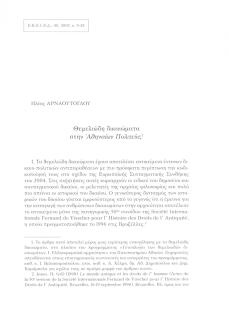
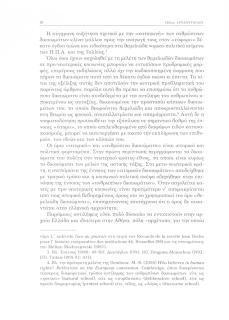
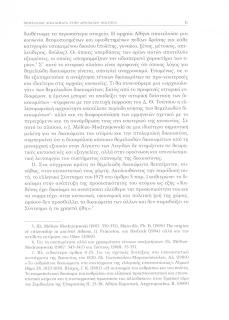
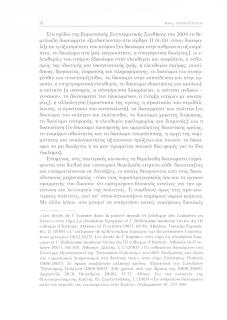
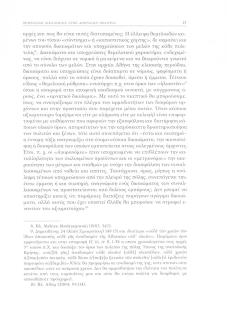
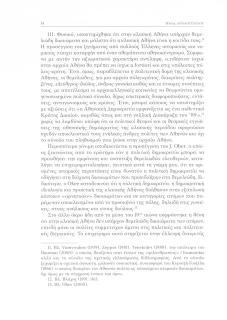
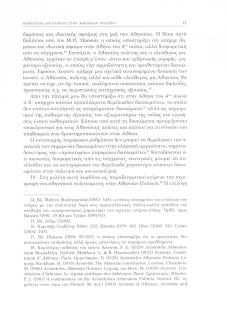
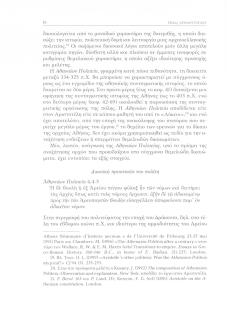
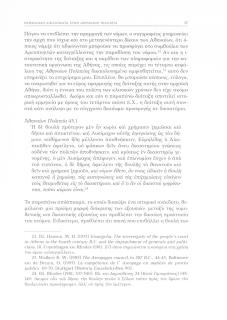
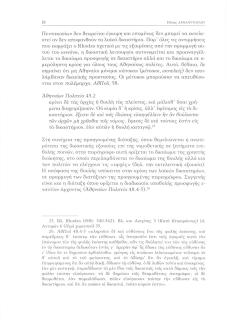
 Look inside pdf
Look inside pdf